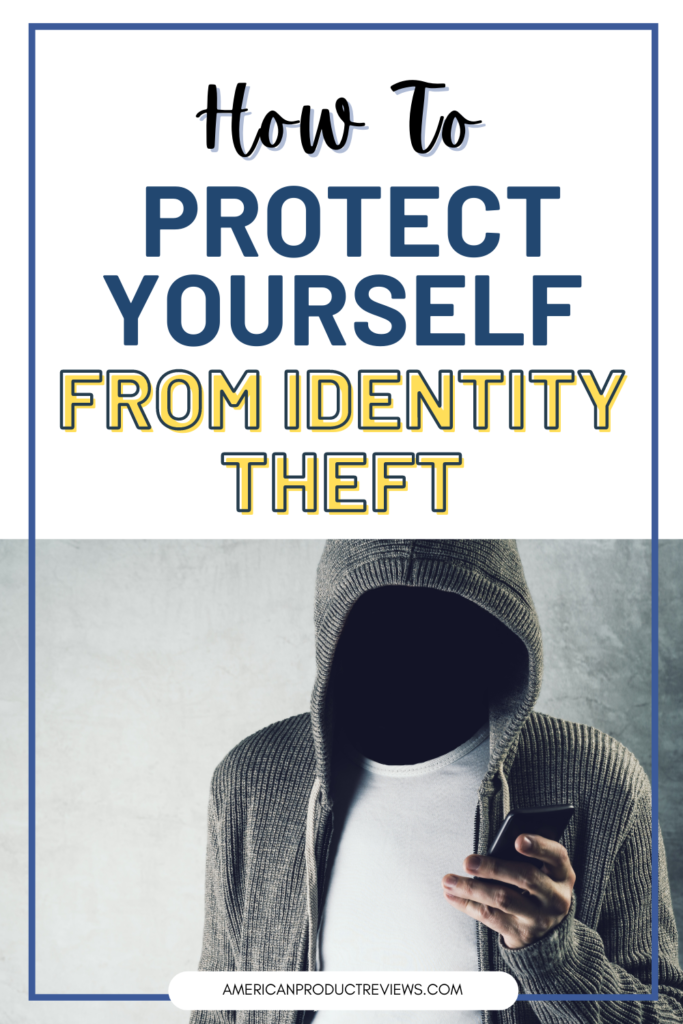Identity theft is a serious problem that can happen to anyone.
There are steps you can take to protect yourself, and if you do become a victim, there are also steps you can take to recover.
Here’s what you need to know about identity theft and how to protect yourself.
Don’t give out your personal information to anyone who you don’t know or trust.
In today’s interconnected world, it’s important to be careful with whom you share your personal information.
Whether it be someone at a store asking for your address to get you discounts or an online quiz promising customized results – avoid giving out any details if you’re not 100% sure.
While it might seem innocent and easy to do, handing over private info can have long-term and serious repercussions.
Always think twice before sharing things like social security numbers, bank information, and address.
Even if the person asking seems like they can be trusted, be careful before giving out any information!
Keep your social security number, credit card numbers, and bank account information safe and secure.
Keeping your personal information protected and secure is so important these days!
It can be scary to think about someone being able to access your online accounts, but there are some things you can do to prevent this from happening.
The first and most important step is keeping your social security numbers, credit card numbers, and bank account information safe and secure at all times.
You should never share this information with anyone, even if you want to.
Also, make sure any device used to store this type of data (laptop, phone, etc..), and all accounts that use this data (banking/payment apps) have strong passwords.
Finally, always remember to watch for emails or phone calls from scammers pretending to work for businesses like banks or credit card companies looking for personal info — hang up or delete these emails immediately!
Even though it might not seem like it, safety is the most important thing!
Be aware of phishing scams, and never click on links from unknown sources.
In this modern age of technology, it’s important to stay vigilant against the threat of phishing scams that can steal personal or financial information.
Before clicking on any links from emails or even from sources you think might be legit, always take a minute to make sure the link looks legitimate and is coming from someone you trust.
Don’t let yourself fall victim to a scammer trying to get access to important data.
Be wary of emails offering too-good-to-be-true offers and gifts, as these are often part of a phishing scheme aimed at taking advantage of unsuspecting people.
If you are careful and use common sense, you can avoid being scammed!
People who want to scam others try to trick them out of their money.
But if you know what is happening, you can stay safe.
Shred important documents that contain sensitive information before throwing them away
If you throw out documents with important information without taking precautions, it could cause many problems.
Shredding these documents is essential to guaranteeing your security and peace of mind.
It’s as easy as using a paper shredder, bringing the documents to a shredding company, or even tearing them up with your hands if that’s what it takes.
Therefore, it’s better to be safe than sorry and shred documents containing personal details before throwing them away.
Doing this will help protect you from any potential financial loss, identity theft, and other issues caused by mistakenly leaving your confidential information exposed.
Monitor your credit report regularly for any suspicious activity
It is essential to look at your credit report often.
With identity theft on the rise, it’s smart to stay up to date on what’s going on with your personal finances.
Your credit report contains personal financial information, so if any suspicious activity is detected, it needs to be addressed right away.
Keeping track of this report can help you avoid fraud and other unwanted outcomes impacting your financial well-being.
Spending a few minutes every couple of months checking your credit score is worth your time.
This will help you ensure you have a good credit score, which has many benefits.
So there you have it, five easy ways to help protect your personal information and keep yourself safe from identity theft.
By following these simple tips, you can rest a little easier knowing that you’ve taken proactive steps to safeguard your information.
Have any other tips on how to stay safe from identity theft?
Share them with us in the comments below!

